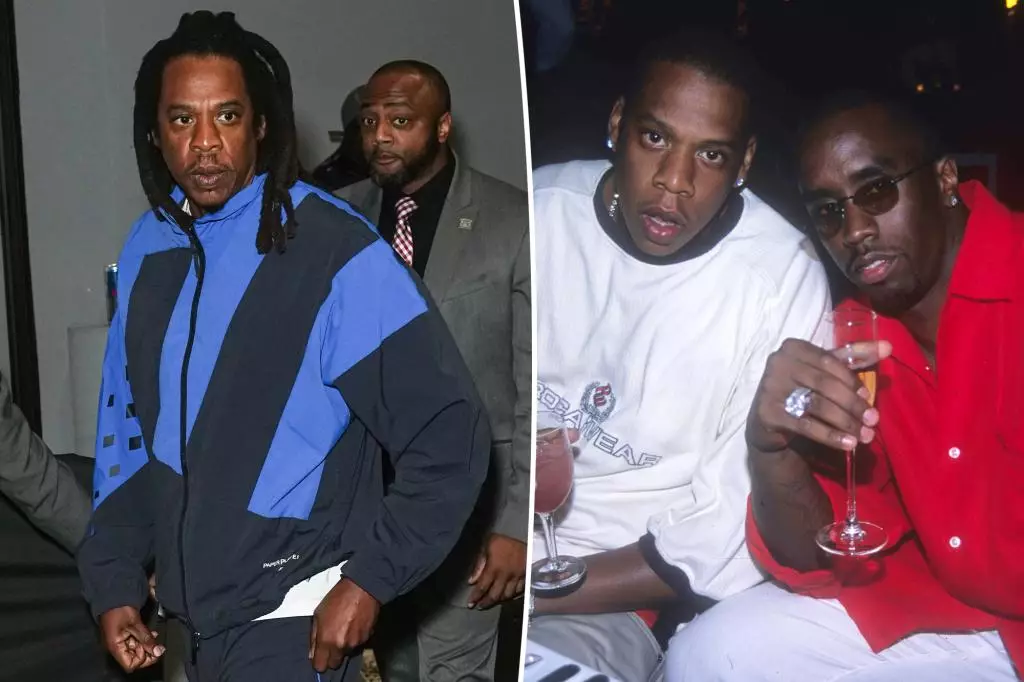In a notable ruling, a New York judge has allowed a rape accuser to continue her lawsuit against music moguls Jay-Z and Sean “Diddy” Combs while allowing her to maintain anonymity. This decision, rendered by Judge Analisa Torres, underscores the delicate balance courts must strike when addressing sensitive allegations that may profoundly affect victims’ lives. The judge reasoned that the plaintiff’s vulnerability, exacerbated by mental health issues stemming from her traumatic experiences, merits protection, at least in the initial phases of the litigation. The ruling is emblematic of the judicial system’s increasing recognition of the potential retraumatization victims face during legal proceedings, particularly in cases involving high-profile defendants.
In her decision, Judge Torres noted, without delving into exhaustive detail, that the court’s interests and the potential consequences for the parties involved warranted an allowance for anonymity. The judge emphasized the significance of safeguarding the plaintiff against possible harm that could manifest through public disclosure. Such considerations suggest a growing awareness within the judiciary of the complex psychological toll that public exposure can levy on survivors of sexual violence. The court’s determination indicates that protecting the mental health and wellbeing of the alleged victim is a priority, particularly during such vulnerable stages of the legal process.
The decision to keep the plaintiff’s identity concealed reflects a broader trend in handling sensitive cases. Historically, victims have often been discouraged from coming forward due to the stigma associated with sexual assault and the potential for public scrutiny. The court’s choice to uphold her request suggests an evolving understanding of the unique challenges faced by survivors and recognizes the importance of providing a safe space for them to pursue justice.
The lawsuit itself presents harrowing allegations. The plaintiff, referred to as Jane Doe, claims that she was assaulted at a 2000 MTV Video Music Awards afterparty when she was only 13 years old. According to the allegations, her experience is compounded by allegations against both Jay-Z and Combs, who are accused of participating in the assault. These revelations, particularly when delivered in the context of a high-profile celebrity environment, raise serious conversations about the power dynamics and vulnerabilities that can manifest in such settings.
The allegations have understandably prompted a vehement denial from Jay-Z’s camp, with his attorney calling the lawsuit “deplorable” and aimed at generating media attention rather than seeking justice. The argument that the plaintiff has shown inconsistencies in her accounts has been leveraged in defense of Jay-Z, but this does not diminish the gravity of the accusations. Such dismissals highlight the often turbulent intersection of celebrity culture and issues of accountability.
As Combs currently faces other legal challenges related to sex trafficking and racketeering, the cumulative nature of these accusations could reshape the public’s perception of both men. The public discussions that arise from cases like these may have profound implications not just for the individuals involved but also for cultural narratives that surround sexual violence, accountability, and the legal system. The overlap of high-profile legal battles paints a concerning picture about the environments wherein power and celebrity can function without accountability.
The responses of both accused—the demand for a public identification of the plaintiff and the push for expedited legal processes—raise ethical questions. An emphasis on swift judicial proceedings may inadvertently undermine the nuanced, often protracted journey that many survivors must navigate when facing their assailants. As these legal winds blow through the often stormy seas of celebrity culture, advocates for victims will continue to monitor how these cases evolve and what they reflect about broader societal attitudes towards consent and abuse.
Ultimately, this case represents more than just a legal battle; it is situated within a larger conversation about the significance of victim rights, the responsibilities of the powerful, and the intricate nature of trauma. As the courts navigate these complexities, the decisions made will either reinforce or challenge social narratives concerning sexual violence, justice, and recovery. Keeping the identity of the plaintiff confidential recognizes her vulnerabilities and might serve as a beacon for others who may still be caught in the darkness of their trauma—highlighting that justice can be pursued without an additional burden of public exposure.

